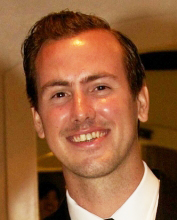 Assistant Professor of Anthropology Theodore Powers has published an article in Medicine Anthropology Theory titled, "Pathways, intersections, and hotspots: Multisited fieldwork and the South African HIV/AIDS policy process."
Assistant Professor of Anthropology Theodore Powers has published an article in Medicine Anthropology Theory titled, "Pathways, intersections, and hotspots: Multisited fieldwork and the South African HIV/AIDS policy process."
The article's abstract is below:
"Since the late apartheid era, the South African HIV/AIDS movement has mobilized infected and affected communities and cultivated alliances to establish and expand a national HIV/AIDS response that is based on human rights. In doing so, HIV/AIDS activists have actively engaged with political dynamics across the institutional domains of the state. Participant observation research with South African HIV/AIDS activists and analyses of the South African HIV/AIDS policy process therefore necessitate following the movement of research participants across many sites. Bringing together existing approaches to multisited research, the concepts of pathways, intersections, and hot spots are utilized to represent the social and spatial experiences of HIV/AIDS activists, state health administrators, and other policy actors within a unified conceptual framework."
Powers earned the PhD from City University of New York Graduate Center in 2012, and joined the UI faculty in 2014. On his website, he describes himself as a sociocultural anthropologist whose research focuses on the dynamics of health, politics, and social inequality in post-apartheid South Africa. Building on conceptual approaches from medical anthropology, the anthropology of transnationalism, political economy, and African studies, his work focuses on the politics of health and society in post-apartheid South Africa. Currently, his research program consists of three projects, which focus on the political economy of HIV/AIDS treatment access, austerity and post-apartheid public health policy, and survival strategies employed by township residents amid material deprivation, trauma, and infectious disease.